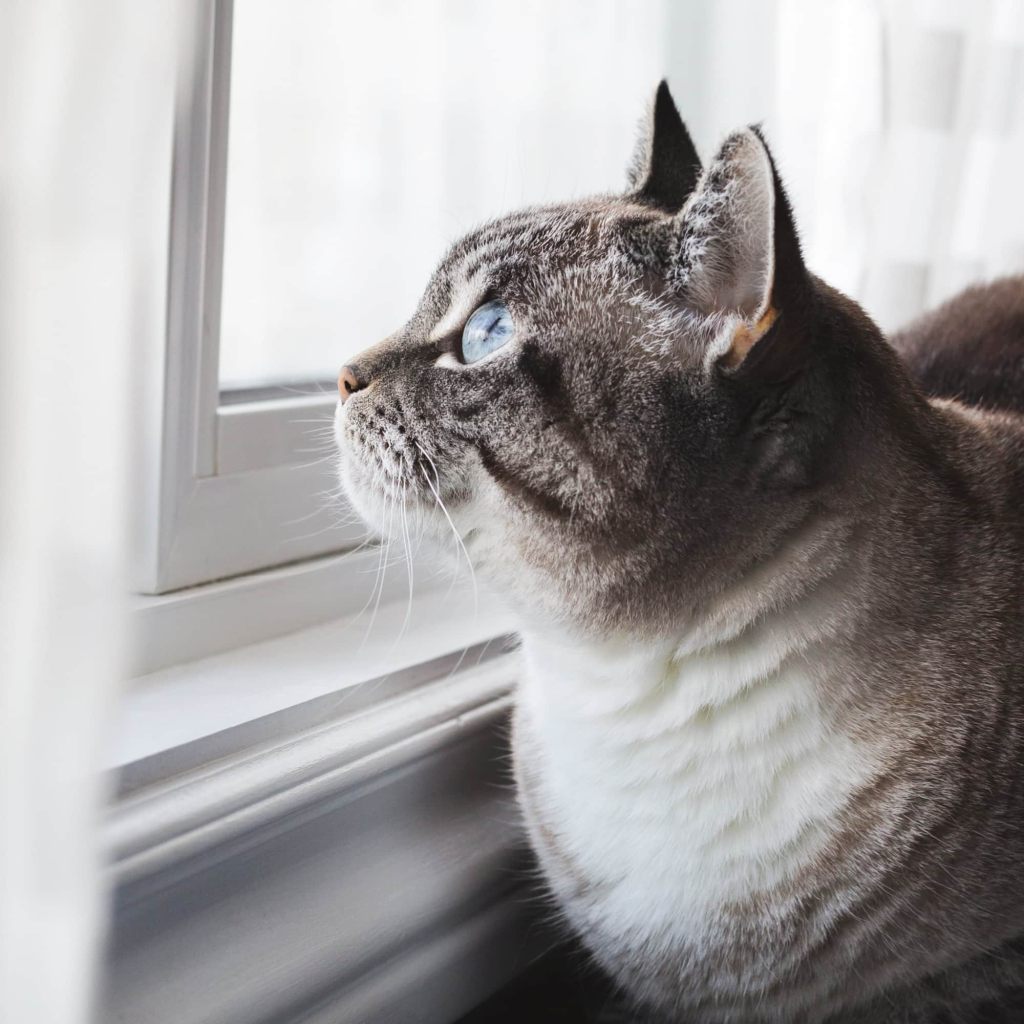Cats help bring so much joy into our lives. Whether they are keeping us laughing with their unique personalities or amusing us with their work-from-home antics, it’s safe to say that life is better with cats around. But what about those days when we can’t be around for them? With the holidays quickly coming up, we may be planning a trip back home to spend it with close family or anticipating a short weekend away during the festive season. Because of this you may be asking yourself, “How long can I leave my cat home alone?” To help find out, POPSUGAR enlisted a few experts to help us answer this question.
How Long Can I Leave My Cat Alone?
As it turns out, how long you can leave your cat alone really depends on your cat’s age and health, but Dr. Sarah Wooten, DVM, CVJ, and vet expert at Pumpkin Pet Insurance recommended not leaving a healthy adult cat alone longer than 24 hours. “As long as a cat has fresh litter, a full bowl of water with 2-to-3 cups of water, and enough dry food for 24 hours, a healthy, adult cat can be left alone for 24 hours,” advised Dr. Wooten, “It is not recommended to leave them longer than that without checking on them.” Dr. Wooten also pointed out that although healthy adult cats can be left alone for this amount of time, kittens under the age of 16 weeks should be checked on every 4 hours, whereas older kittens should not be left alone for more than 4-6 hours.
Dr. Megan Teiber, DVM, and veterinarian consultant at Tuft + Paw echoed this sentiment, and explained that you should also take into account the fine details of your cat: Do they have any conditions? Are they on any medications? How are they behaviorally? “Kittens, cats on regular medications, or cats with unstable medical conditions should never be left alone for an extended period,” said Dr. Teiber. Dr. Teiber also advised that the more cats you have, the more complicated it may get, so it is important you keep this in mind when leaving them home without any supervision.
How Should I Prepare Them?
If you leave your cats unattended for an extended period of time it is important that you prepare them beyond just setting out dry food, fresh water, and litter. For instance, you also should make sure to “cat-proof” your home. Dr. Teiber recommended making sure no human foods or toxic items, including plants, are within your cat’s reach and that windows and doggy doors are kept closed. It is also important that the thermostat be set to a comfortable temperature while you are out, and if you are worried about feeding times, an automatic feeder is always an option. “If your cat is a known chewer, prevent access to small toys, electrical cords, or other harmful objects,” Dr. Teiber added.
Besides making sure your home is a safe place for a cat to roam unsupervised, Dr. Kurt Venator, DVM, PhD, Chief Veterinary Officer at Purina, also shared that cats should have stimulation to keep themselves occupied. “When left alone for long periods of time, it’s important to keep your cat engaged with stimulating puzzles, perches, and games that they can partake in alone,” he said. Dr. Venator suggested puzzle feeders and treat mazes as great options for cats who may be left alone in the house. “Additionally, it’s helpful for cats to have some background noise during the day,” said Dr. Venator. You can do this by turning on a television or radio at a comfortable level. “The extra noise provides some distraction, helping your cat feel less alone,” he added.
Overall, cats can be left alone in the home for a period of time but it is important that you prepare both your cat, and your home, beforehand. And when in doubt, make sure to test the waters first. “Gradually increase the amount of time you spend away to see how [your cat] handles it before taking an overnight leave,” Dr. Teiber advised.

